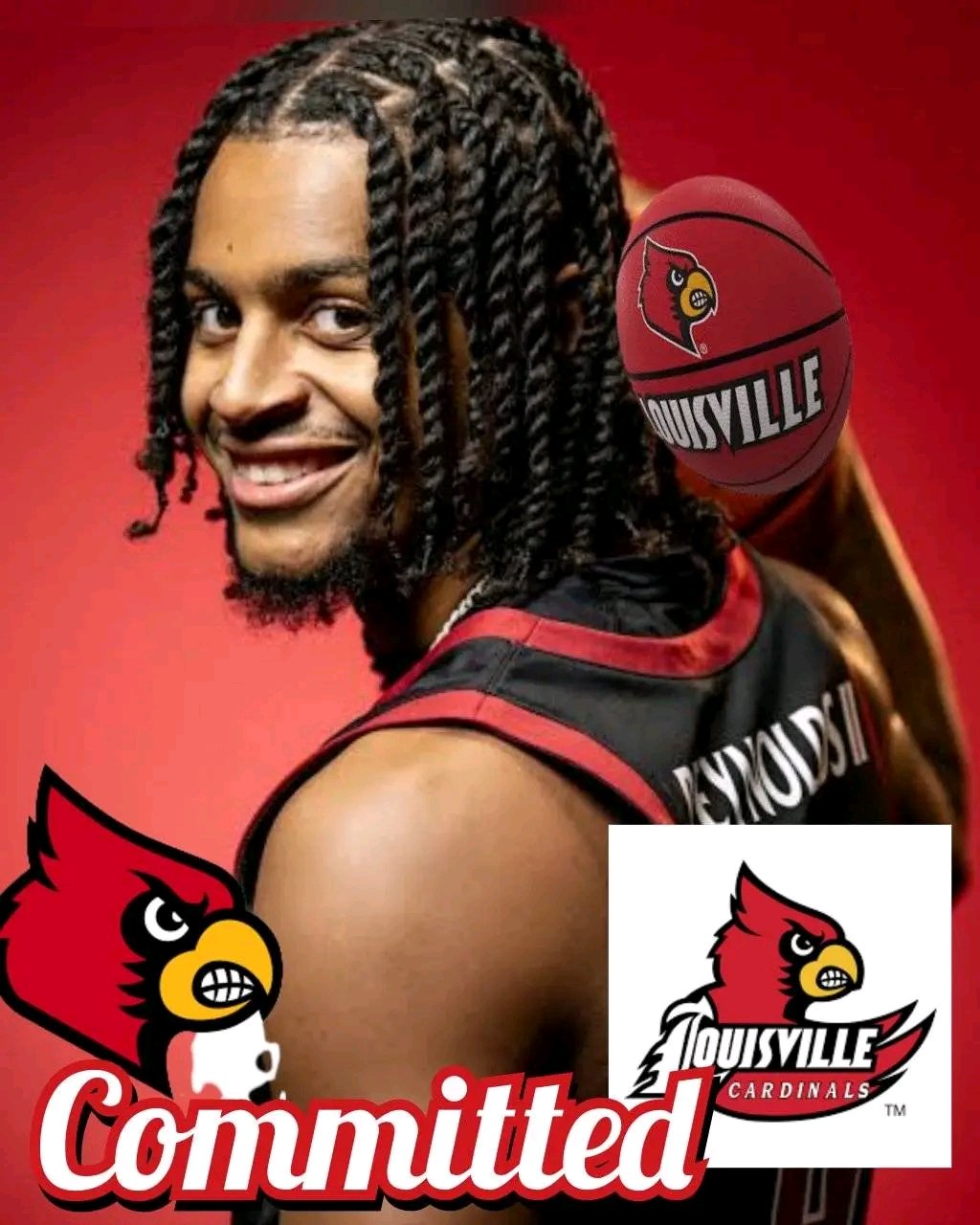**BREAKING NEWS: 5-Star Shocks Basketball World — Rejects $8.7 Million NIL Deal, Decommits and Flips to Louisville Cardinals**
In a move that has sent shockwaves through the college basketball landscape, a five-star recruit has stunned fans, analysts, and even his own future teammates by rejecting a historic $8.7 million Name, Image, and Likeness (NIL) deal to decommit from his original program and instead sign with the Louisville Cardinals. The decision, unprecedented in both its financial implications and its sheer audacity, has redefined the modern era of recruiting, NIL, and player empowerment.
The recruit, whose identity had been closely guarded until his official announcement, was widely regarded as the crown jewel of his class—a generational talent expected to dominate college basketball from day one. For months, speculation swirled about which powerhouse program would secure his commitment, with many assuming his decision would be heavily influenced by the highest NIL offer. Several elite programs, including blue-blood institutions with deep-pocketed boosters, lined up with multi-million-dollar deals, believing that financial incentives would be the ultimate deciding factor.
However, in a stunning twist, the player turned down what would have been the richest NIL deal in college sports history—an $8.7 million package from a rival school—to join Louisville, a program in the midst of a resurgence under its new coaching staff. Sources close to the situation reveal that the decision was not about money but rather about fit, culture, and the opportunity to be the face of a revitalized Cardinals program.
The ramifications of this move are immense. First and foremost, it shatters the widely held assumption that top recruits will always chase the highest paycheck. While NIL has undeniably transformed college athletics, this decision proves that some players still prioritize development, relationships, and legacy over pure financial gain. Louisville’s coaching staff, led by a charismatic and player-friendly head coach, reportedly made a profound impression on the recruit during an unofficial visit, emphasizing player development, NBA readiness, and the chance to lead a storied program back to national prominence.
For the school that lost his commitment, the fallout is significant. Not only did they miss out on a transformational talent, but they also now face questions about their recruiting strategy. Did they overestimate the power of money? Was their pitch lacking in other key areas? Rival programs will undoubtedly use this as a cautionary tale when dealing with elite recruits—cash alone may not always be enough.
Meanwhile, Louisville’s fanbase is electrified. After years of ups and downs, including NCAA investigations and coaching changes, this commitment signals a potential turning point. Landing a five-star prospect of this caliber—one who turned down nearly $9 million elsewhere—sends a message to the rest of the country: the Cardinals are back, and they mean business. Social media erupted with reactions from stunned analysts, jubilant Louisville supporters, and disbelieving rivals.
The player’s bold choice also raises larger questions about the future of NIL in college sports. While lucrative deals have become the norm for top-tier athletes, this situation proves that not every recruit is motivated solely by financial incentives. Some still value the intangibles—coaching, playing time, team chemistry, and the chance to make history. This could prompt schools to rethink their recruiting pitches, placing more emphasis on player development and culture rather than just dollar figures.
Additionally, the move could inspire other elite recruits to consider similar paths. If a player of this stature can turn down life-changing money for what he believes is a better long-term opportunity, others may follow suit. The decision challenges the narrative that NIL has completely commercialized college athletics, suggesting that there is still room for tradition, loyalty, and personal conviction in the recruiting process.
As for the player himself, the pressure will be immense. Expectations were already sky-high given his five-star status, but now, after publicly rejecting nearly $9 million to play elsewhere, the spotlight will be even brighter. Every game, every stat line, every highlight will be scrutinized. Can he live up to the hype? Can he justify his decision by leading Louisville to greatness? Only time will tell, but one thing is certain: the basketball world will be watching.
In the end, this seismic recruiting flip is more than just a headline—it’s a statement. It’s a reminder that, despite the growing influence of money in college sports, some players are still willing to bet on themselves, their instincts, and their dreams over the biggest paycheck. For Louisville, it’s a program-defining moment. For the recruit, it’s a gamble that could redefine his career. And for college basketball, it’s a wake-up call—the game is changing, but not always in the ways we expect.
The shockwaves from this decision will be felt for years to come, reshaping recruiting battles, NIL negotiations, and the very soul of college athletics. One thing is clear: in an era where money talks louder than ever, this five-star phenom just proved that sometimes, the most powerful statement is saying “no.”





